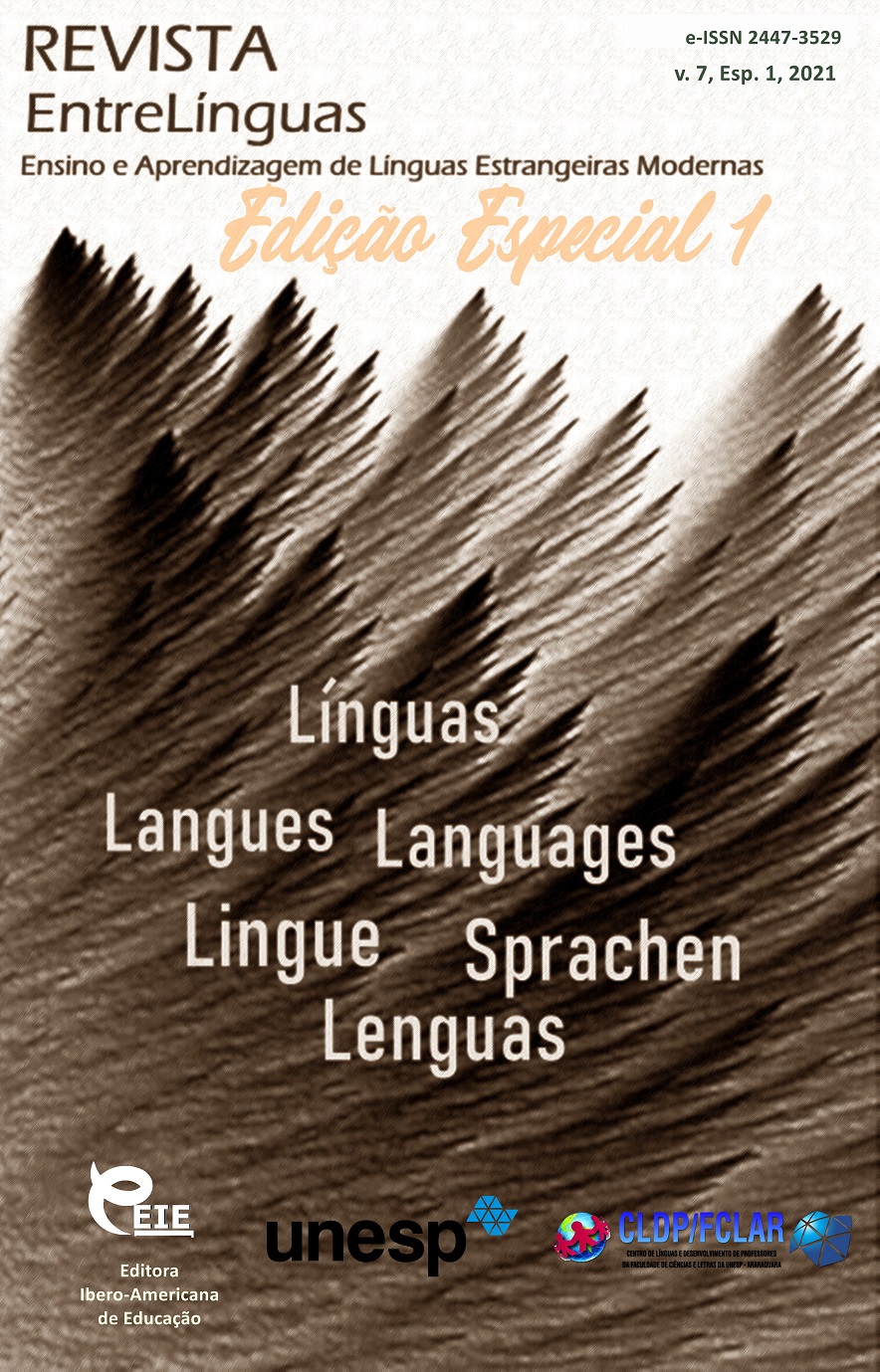Semiotics of fiction in teaching Russian as a foreign language
DOI:
https://doi.org/10.29051/el.v7iEsp1.14887Keywords:
Russian as a foreign language, Modern education, Semiotics, Gogol, The poemAbstract
One of the conditions for the spread of the Russian language is the education of foreign students in Russian universities. Consequently, the search for new approaches to teaching Russian as a foreign language becomes relevant. Practice has shown that literature is a guide to understanding the characteristics of the Russian language and the development of oral speech. The object of the study is a literary text in the system of teaching the Russian language. The purpose of this work is to search for the effective forms and methods of teaching foreign students the Russian language on the basis of literary text. The results of the study showed that the most effective form of training is the use of educational technologies based on practice-oriented aspects of semiotics. On the material of the Gogol's poem "Dead Souls" the technique of working with literary text is shown.
Downloads
References
GLOTOVA, G. A. Person and sign: semiotics and psychological aspects of ontogenesis of the person. Sverdlovcs, 1990. 256 p.
GOGOL, N. V. Dead souls. A new translation by Richard Pevear. Pantheon Books, 1996. 352 p.
MAKLEEVA, E. A.; AKHMETZYANOVA, L. M. Yan Zhike, Integration of teaching methods and principles of selection of language material in classes of Russian as a foreign language. Ad alta-journal of interdisciplinary research, v. 8, n. 1. p. 172-174, 2018.
MAKRISHINA, N. V. et al. Practical tasks of studying literature in a foreign language and communication skills. Opción, año 35, n. esp. 22, р. 964-977, 2019.
MAMARDASHVILI, M. K.; PYATIGORSKIY, A. M. Simvol i soznanie. Metafizicheskie Rassuzhdeniya O Soznanii, Simvolike I Yazyke. 1997. p. 18-21.
MECHKOVSKAYA, N. B. Semiotika: Yazyk. Priroda. Kul'tura: Kurs lekcij: Uchebnoe pochsobie. Moscow: Akademiya, 2004. 432 p.
PLOTNIKOV, B. A. Semiotika teksta: Paragrafemika: uchebnoe posobie. Minsk: Vyshejshaya shkola, 1992. p. 5-39.
SALAKHOVA, A. R.; BURTCEVA, T. A. Russian literature through the reading-glass, and what a reader would find there. Journal of Language and Literature, v. 7, n. 1, p. 167-170, 2016.
SHTYRLINA, E. G. Basic Methods for Working with Poetic Texts at Russian as a Foreign Language Lessons. The Journal of Social Sciences Research, n. esp. 1, p. 242-246, 2019.
VOROPAEV, V. V. Gogol: zhizn' i tvorchestvo. Izd.3. Moscow: Izd-vo MGU. 2002. 128 p.
Downloads
Published
How to Cite
Issue
Section
License

This work is licensed under a Creative Commons Attribution-NonCommercial-ShareAlike 4.0 International License.
Os manuscritos aceitos e publicados são de propriedade da Revista EntreLínguas. Os artigos publicados e as referências citadas na Revista EntreLínguas são de inteira responsabilidade de seus autores.
Transferência de direitos autorais – autorização para publicação
Caso o artigo submetido seja aprovado para publicação, já fica acordado que o(s) autor(es) autoriza(m) a UNESP a reproduzi-lo e publicá-lo na EntreLínguas, entendendo-se os termos “reprodução” e “publicação” conforme definição respectivamente dos incisos VI e I do artigo 5° da Lei 9610/98. O artigo poderá ser acessado pela rede mundial de computadores (Internet), sendo permitidas, a título gratuito, a consulta e a reprodução de exemplar do artigo para uso próprio de quem a consulta, desde que haja a citação ao texto consultado. Essa autorização de publicação 328 EntreLínguas, Araraquara, v. 1, n .2, p. 323-328, jul./dez. 2015 não tem limitação de tempo, ficando a UNESP responsável pela manutenção da identificação do(s) autor(es) do artigo. Os artigos publicados e as referências citadas na Revista EntreLínguas são de inteira responsabilidade de seus autores.











